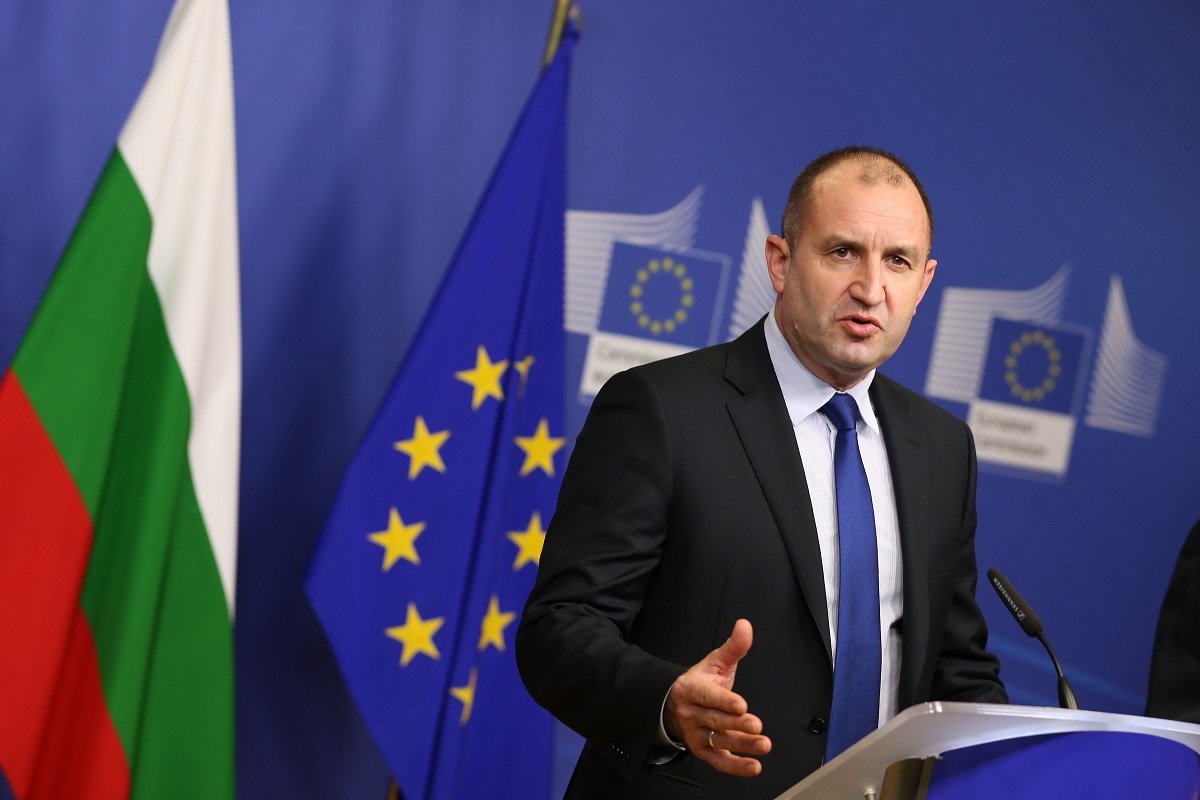Bulgarian President Rumen Radev was the only president of a European Union country to attend the inauguration on Monday of Turkish President Recep Tayyip Erdoğan, Turkey’s state-run Anadolu news agency reported.
Erdoğan took the presidential oath of office in Parliament on Monday to become the Republic of Turkey’s first president under its new regime. The session was chaired by acting Parliament Speaker Durmuş Yılmaz.
Erdoğan’s re-election in the June 24 polls marked Turkey’s transition to an executive presidential system of governance, doing away with the prime minister’s post, among other changes. Speaking to journalists after the ceremony, Erdoğan said, “Everything was good in front of the nation, I hope it will be better in the future.”
Deputies from the ruling Justice and Development Party (AKP) and its ultranationalist ally the Nationalist Movement Party (MHP) stood up, as is customary, during Erdoğan’s swearing-in, while the main opposition Republican People’s Party (CHP), pro-Kurdish Peoples’ Democratic Party (HDP) and İYİ Party lawmakers did not. CHP leader Kemal Kılıçdaroğlu did not attend the ceremony.
Erdoğan is due to announce his new Cabinet under Turkey’s presidential system at 9:30 p.m. As Turkey has officially shifted to a presidential system without any check and balance mechanisms Erdoğan has become Turkey’s first leader under the presidential system with dictatorial powers.
Marc Pierini, a former EU ambassador to Turkey and visiting scholar at Carnegie Europe, told Reuters that Erdoğan’s new powers would effectively make him a “super-executive president.” “Most powers will be concentrated in his hands, there will no longer be a prime minister, and almost none of the checks and balances of liberal democracies will be present. In other words, Turkey will be an institutionalized autocracy.”
Twenty-two heads of state including the presidents of Georgia, Macedonia, Moldova, Bosnia and Herzegovina, Serbia, Kosovo, Bulgaria, Venezuela, Pakistan, Kyrgyzstan, Sudan, Guinea, Zambia, Guinea Bissau, Equatorial Guinea, Somalia, Mauritania, Gabon, Chad, Djibouti and the Turkish Republic of Northern Cyprus as well as the emir of Qatar attended the ceremony in the Turkish capital.
According to Anadolu, 28 foreign dignitaries — including prime ministers, vice presidents, parliament speakers and ministers — were in attendance. The secretaries general of the Organization for Security and Co-operation in Europe (OSCE) and the D-8, and the European commissioner for Migration and Home Affairs were also among the attendees.
Russian Prime Minister Dmitry Medvedev, Hungarian Prime Minister Victor Orbán, Albanian Prime Minister Edi Rama, Senegalese Prime Minister Mahammed Dionne and Algerian Prime Minister Ahmed Ouyahia were present at the ceremony.
Former prime ministers Silvio Berlusconi of Italy and Gerhard Schröder of Germany also attended.
Erdoğan was sworn in at Parliament on Monday at 4:30 p.m. local time. Following the swearing-in ceremony, he visited Anıtkabir, the mausoleum of the founder of the Turkish Republic, Mustafa Kemal Ataturk.
At 6 p.m. local time, Erdoğan’s inauguration ceremony was held at the presidential palace. Erdoğan was accompanied cavalry and welcomed with an Ottoman march when he arrived at his palace. (SCF with turkishminute.com)















